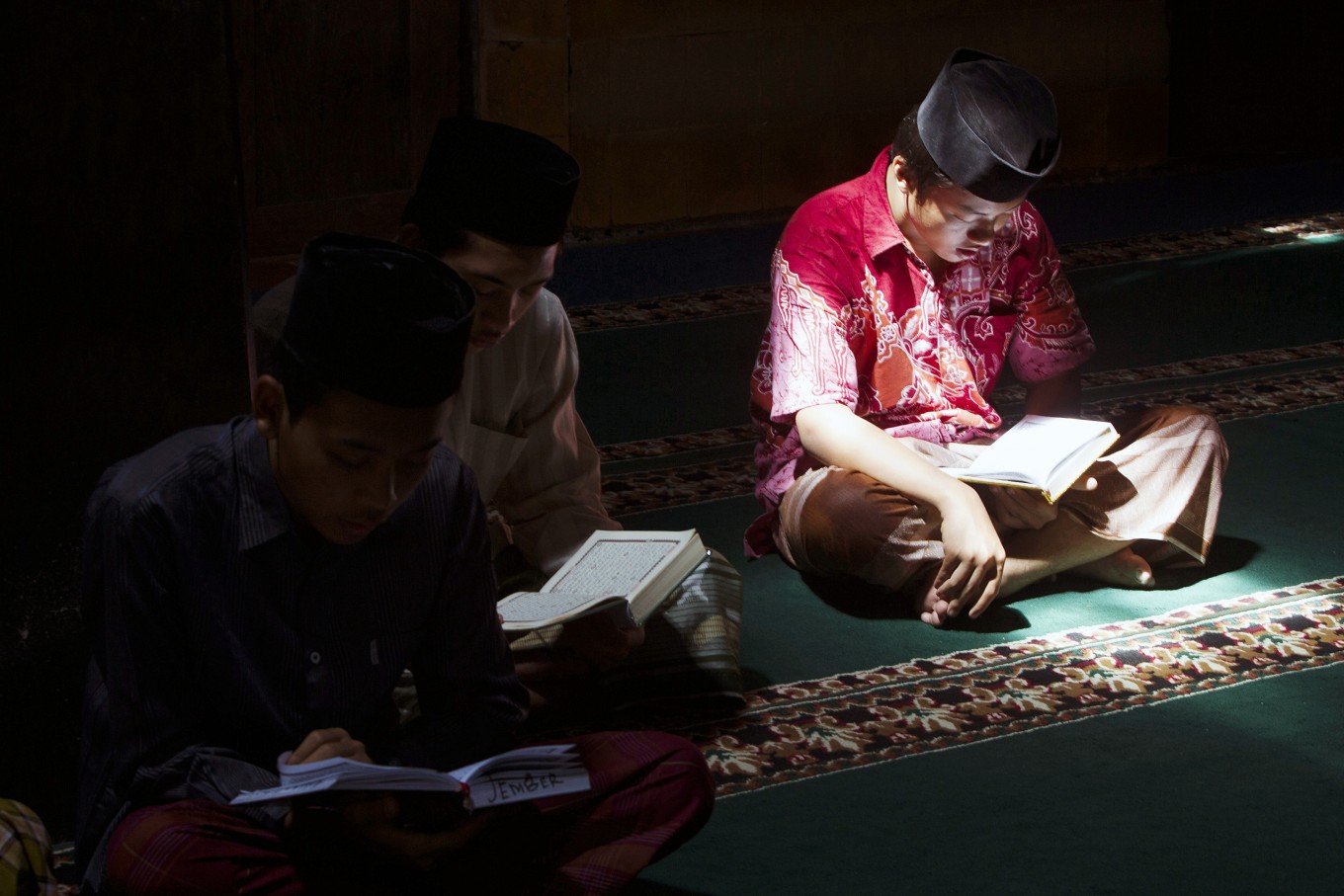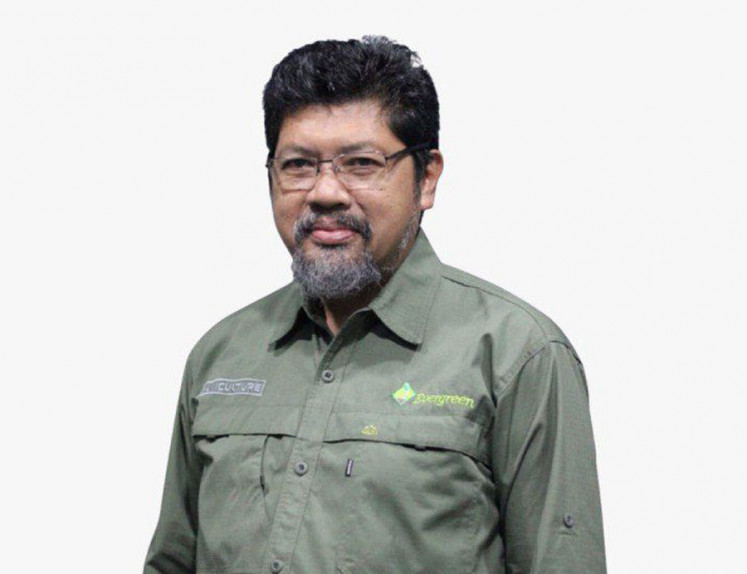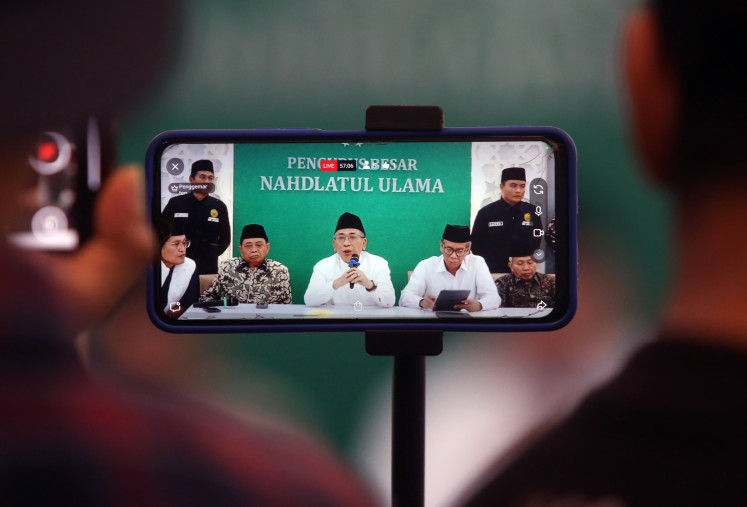Popular Reads
Top Results
Can't find what you're looking for?
View all search resultsPopular Reads
Top Results
Can't find what you're looking for?
View all search resultsHow the daily lives of Indonesian youth can tell us why they become more conservative
I found these youth do not simply learn about tolerance from grand concepts taught in class. They also learn from their direct experiences with religious diversity.
Change text size
Gift Premium Articles
to Anyone
I
ndonesia, the world’s largest Muslim population, is still often promoted as an example of a modern and moderate Islamic democracy.
However, various reports have indicated growing levels of Muslim conservatism.
Among them is last year’s Indonesian Muslim Report by research firm Alvara.
Based on interviews with 1,567 respondents in 34 provinces, the report suggests the country’s young generation is becoming more conservative. The report indicates that both generation Z (aged between 14 and 21 years old) and young millennial (22-29) respondents dominate within those who identify as “puritan & ultra-conservative”, accounting for almost 60 percent.
Those are significant figures as Indonesia’s young generation accounts for almost a quarter of the country’s population, or around 63.8 million individuals.
While these reports give cause for great concern, the numbers reveal little about how young people navigate daily encounters with religious difference.
My research on the everyday lives of Indonesian young people and their religious interactions may help shed light on why they are becoming more conservative.
Everyday practices
In 2013, I interviewed 20 people between the ages of 16 and 19 from three different high schools in the nation’s capital, Jakarta: a private, public and a public-run Islamic high school. These three schools use the national curriculum, but the Islamic school has an additional curriculum on Islam.
I also conducted focus group discussions with these young people.
I found these youth do not simply learn about tolerance from grand concepts taught in class. They also learn from their direct experiences with religious diversity.
This is contrary to what the government believes.
The government believes a tolerant society comes from decades-long teaching of tolerance from the New Order regime. This teaching forbids debates on religions, races and tribes among its citizens to avoid conflicts.
Yet although young people are conditioned to avoid discussing religions in public, my research shows everyday experiences of religious diversity influence their views.
One of my respondents, a 16-year-old from an Islamic high school, shared that he came to an understanding about tolerance and how to practice it from his daily experience with non-Muslim friends in his neighborhood.
This not only confirms the importance of the everyday experience for learning tolerance, but my interviews also show young people need access to spaces and opportunities that encourage inter-religious relationships in their everyday lives.
In the above case, my respondent has access to building amicable, close and daily relationships with his non-Muslim neighbors.
But now we see the mushrooming of exclusively Muslim housing complexes such as in Yogyakarta.
Read also: Muslims only: Exclusive Islamic housing comes with loss of tolerance
These exclusive spaces are the result of a combination of growing conservatism, capitalist interests and the lack of an inclusive vision of the city’s spatial planning.
This may result in young people having more limited access to others from different religious backgrounds, further generating their conservative views.
This does not mean the existence of Muslims-only housing becomes the only factor behind the rising conservatism among youths.
But it does suggest it’s important to understand and acknowledge that day-to-day experiences influence young people’s lives and views.
The need for further studies
By focusing on young people’s everyday interactions, my research aims to help us understand the social contexts shaping their attitudes and values, including their religious views.
Social contexts play a significant role in providing spaces and opportunities for promoting tolerance in the lives of Indonesian youths.
An analysis of social, political, economic and cultural structures will give us a bigger picture. This will avoid simplifying the issue by putting the blame on the youth alone.
However, this kind of research is still limited.
Rising conservatism among Indonesian youth requires a structural analysis of the social and political contexts in which they live. We need to understand the roles of government, educational institutions, media, families and religious leaders in these young people’s lives, as well as how economic inequalities affect their religious views.
Thus, the question of why Indonesian youth is becoming more conservative remains open and demands further investigation of their everyday lives.
***
Ben K. C. Laksana, Lecturer, International University Liaison Indonesia
This article was first published on The Conversation. Read the original article.










